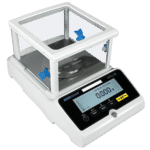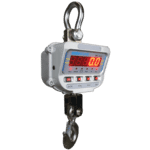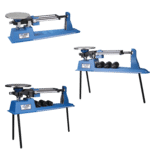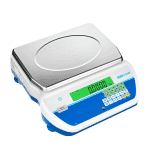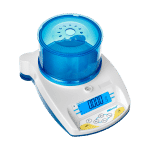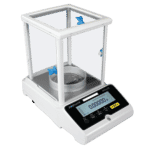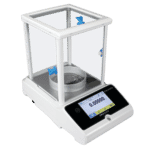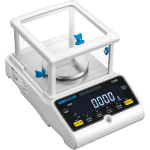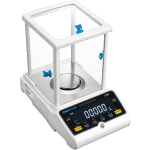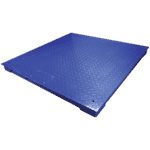
Though people often assume “scale” and “balance” mean the same thing, the differences between the two types may impact your choice of purchase. This blog will discuss scales and balances, their differences, and which one to choose for your needs.
What is a Weighing Scale?
A weighing scale is a type of device that determines weight by measuring deflection. Mechanical scales, which don’t require electricity, operate using springs that stretch when weight is applied.
The radial dial displays the amount of force required to stretch the spring, which has been translated into pounds or kilograms. These days, though you may have a bathroom scale or kitchen scale at home, spring scales are outdated for professional purposes. Instead, digital scales with load cells have transformed the market.
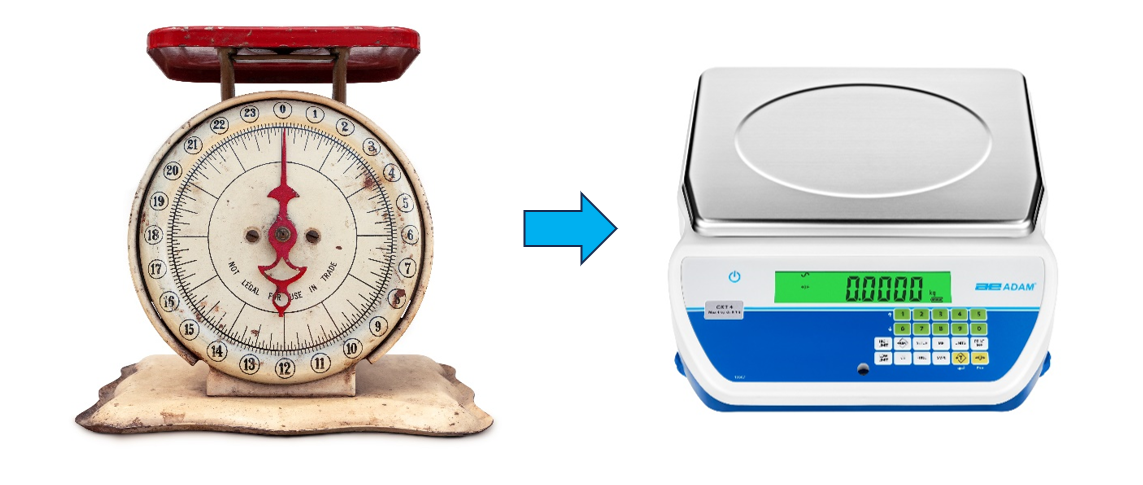
Load cells are transducers that can convert the force, or weight, of an item exerted onto it into a measurable electrical output. Essentially, the load cell, constructed from aluminum or stainless steel, has an electrical current that runs through it. These metals have a certain give to them, causing the load cell to bend when weight is applied to it. The electrical current senses how much it bends, translates it, and shows it on the digital display.
So, digital scales measure deflection like a spring scale, but they’re much more durable and accurate. For example, our digital IHS 20a crane scale can measure weights up to 10,000kg – a spring must be extremely large to handle that much. It would also be incredibly dangerous if the spring broke. Meanwhile, the IHS is relatively compact.
What’s a Balance?
Balances have been around a lot longer than scales – a few thousand years longer. If you’re interested, we discuss the evolution of the laboratory balance through time in this blog. Instead of measuring deflection, balances require the application of known weight to determine your unknown weight.
An example of a modern mechanical balance is our TBB Triple Beam. Each beam has a weight attached, which, when slid along the beam away from the pan in the correct order, eventually creates equilibrium. Add the weight required to get there, and you have your result. The TBB is excellent for classroom use, as it’s hands-on and demonstrates the weighing process.
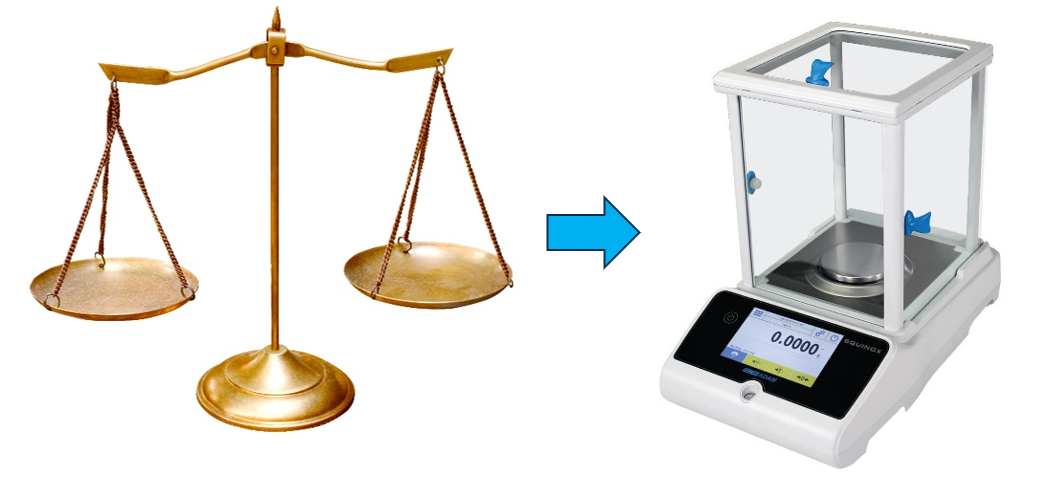
For professional purposes, digital balances are used the most often. With digital balances, the process of creating a force equal to your item is all internal, using a force restoration mechanism. The force restoration mechanism uses coils mounted in a magnetic field to create enough force to balance the object. The amount of force necessary is what gets displayed as the weighing result.
Should You Choose a Scale or a Balance?
All-in-all, when you’re looking for the right weighing machine for you, the choice will come down to the capacity and precision you require. Here’s how scales and balances compare in this regard:
Capacity
You’ll find that most weighing machines with capacities above a few kilograms will be scales instead of balances. Bench, floor, platform, and hanging scales are all examples of products that can handle a lot of weight.
Load cells are highly durable, and, using our PT Platform Scales as an example, some can have more than one. The PT Platform Scale has four load cells, one at each corner. You get an accurate weight reading no matter how the item is placed on the platform. This allows the PT to have capacities between 1000kg and 10,000kg.
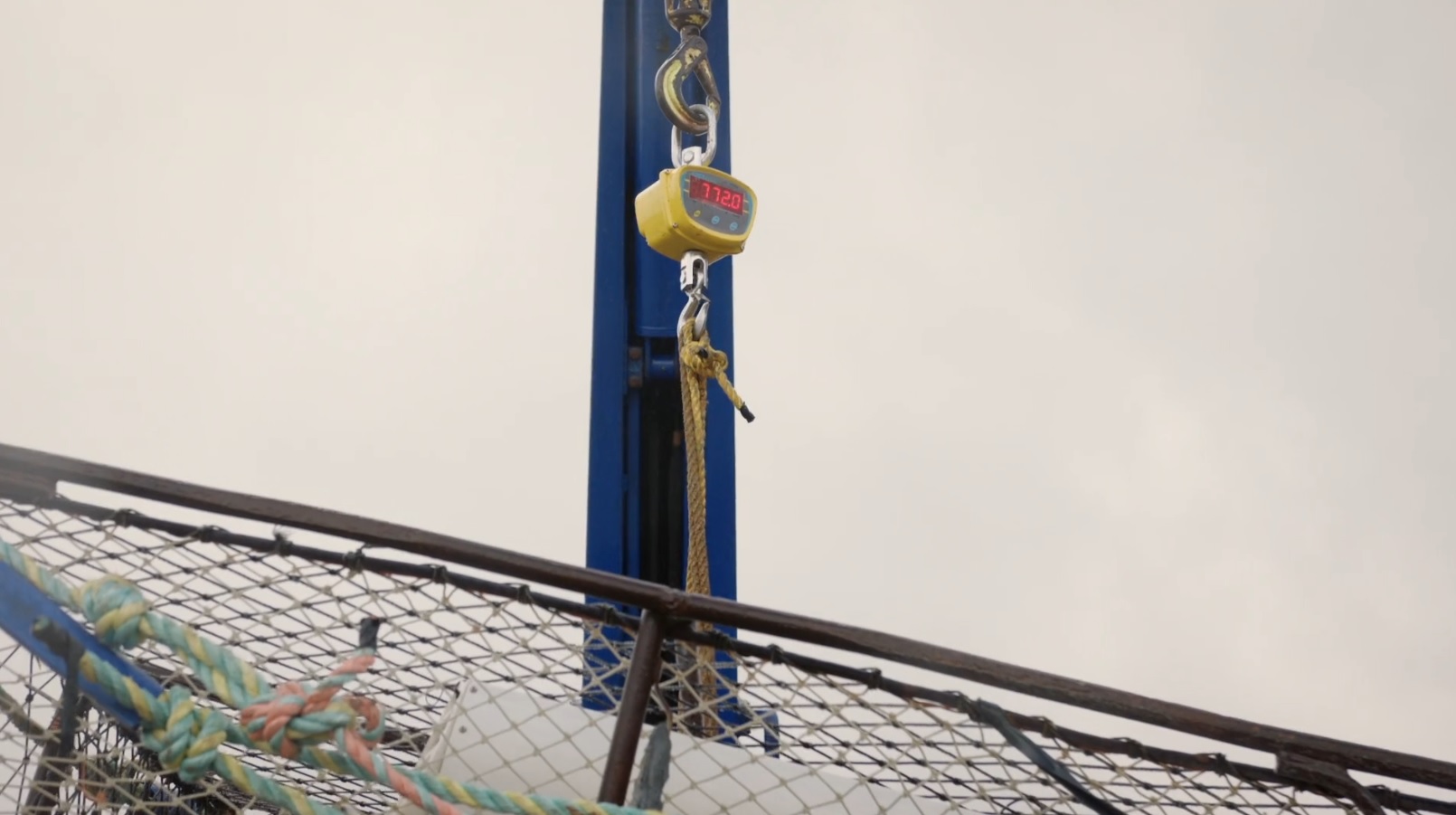
On the other hand, semi-micro, analytical and precision balances have significantly lower capacities. Their force restoration mechanisms must be able to create an equal amount of force against the weight of your object. This is much easier when weights are a few kilograms or less. Our Equinox EAB 125i Semi-Micro Balance has a low capacity of 62g – for good reason!
So, if you need a weighing machine with a high capacity, you’ll almost certainly be purchasing a scale, rather than a balance, and vice versa.
Precision
Balances are more precise and accurate than scales are, with much finer readabilities. The EAB 225i may be able to hold only 62g, but it can provide results as accurately as 0.01mg! Our least fine balances still have readabilities of 0.1g or less, with capacities as high as an impressive 22kg.
For comparison’s sake, the IHS 20a Crane Scale with 10,000kg capacity has a readability of 2kg. However, you certainly won’t be using our Equinox balances for the same purposes that you would use an IHS Crane Scale. If you’re crafting medicines, results as fine as 0.01mg are crucial – but when you’re weighing shipping crates or other large items, a 2kg readability is ideal!
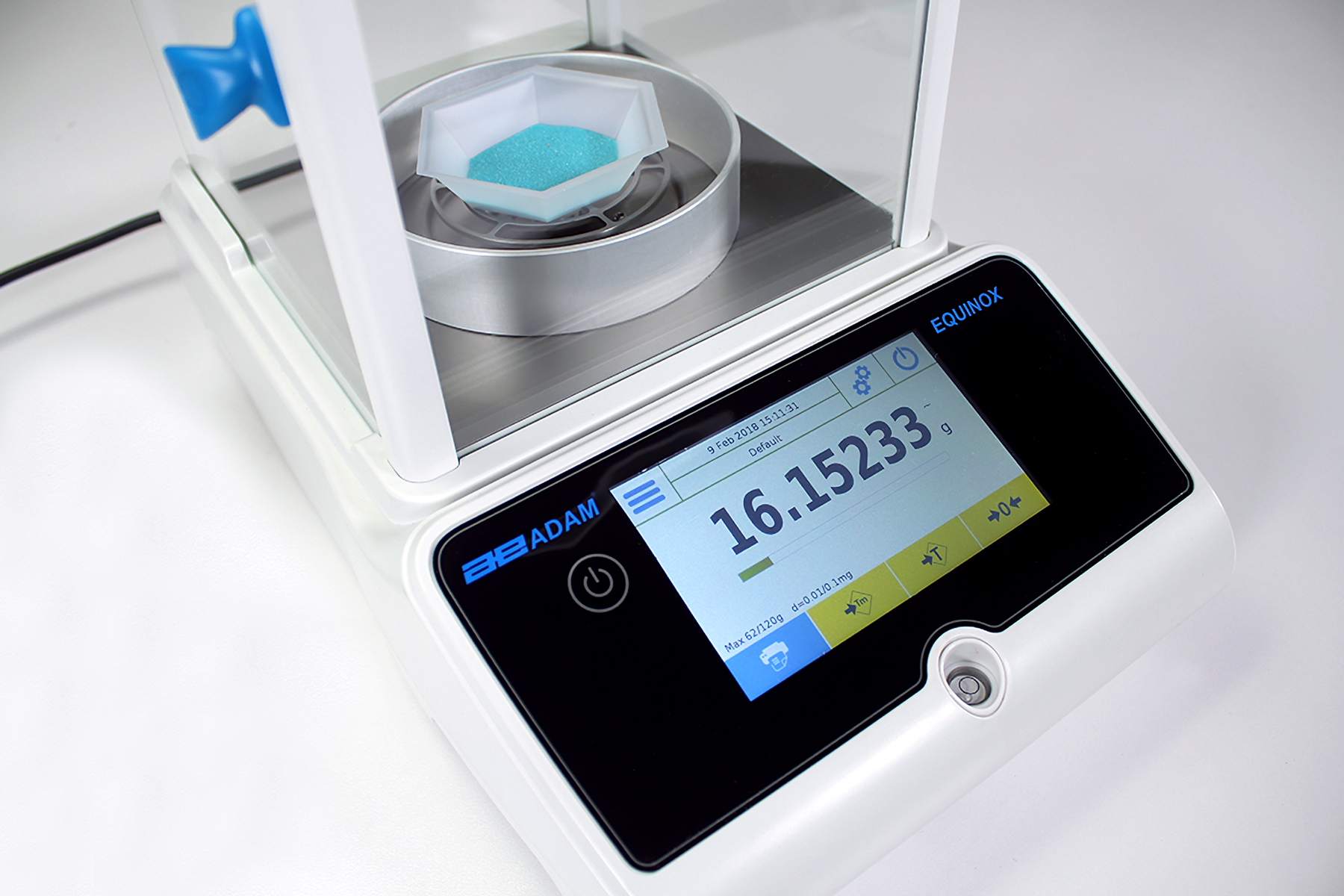
The precision of balances also makes them much more sensitive than scales. Often, with such fine readabilities, simply weighing on an open pan like you can with a bench scale isn’t enough. The finer the readability, the more precautions you must take to prevent outside disturbances from affecting your results.
For example, most of our Highland HCB Portable Precision Balances feature a removeable draft shield. You could use the balance without a draft shield perfectly fine if there’s a normal level of disturbance happening around you (air conditioning, people walking by, etc.) but if you’re outside and it’s windy or students are stomping around the room, it’s a good idea to pop that top on.
Our Equinox, Solis and Luna Precision balances feature non-removable draft shields, because regular day-to-day air drafts may impact your results. Our Equinox, Solis and Luna Analytical Balances also feature draft shields, but they’re recommended to be used in tandem with an AVT Anti-Vibration Table and an ABI-1 Ionizer, since small vibrations and static also become a concern Meanwhile, busy and active warehouses and factories frequently use our CKT Bench Checkweighing Scales.
Whether it’s balances or scales, you’re sure to get a quality weighing machine with Adam Equipment. Unsure which of our wide range of scales or balances is best for you? You can contact our team for help.




